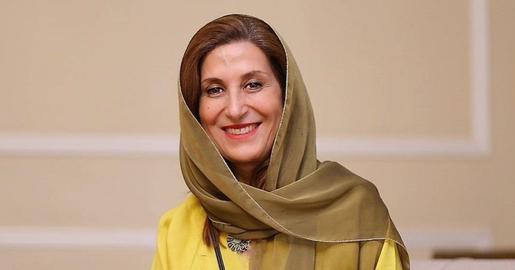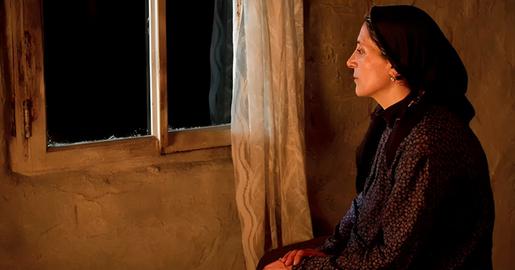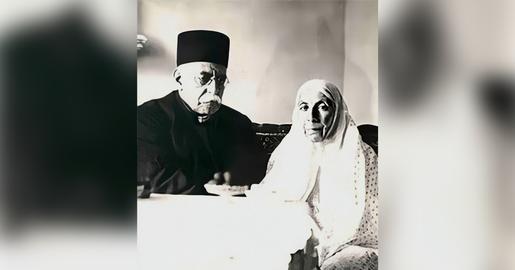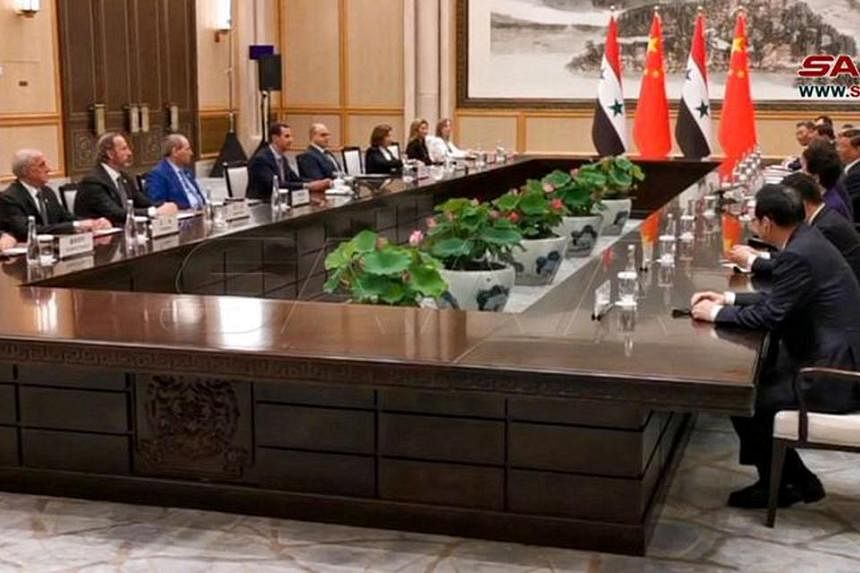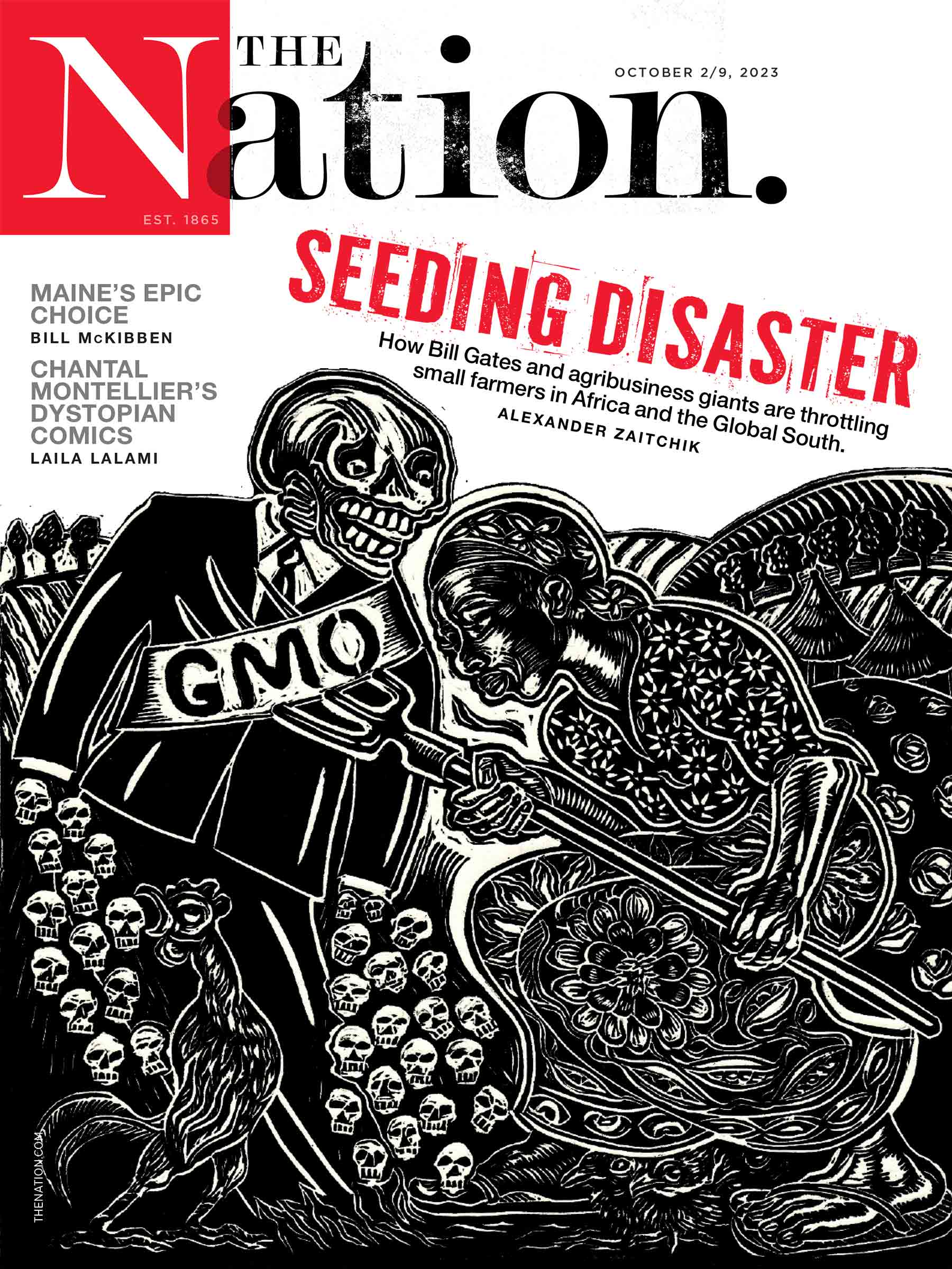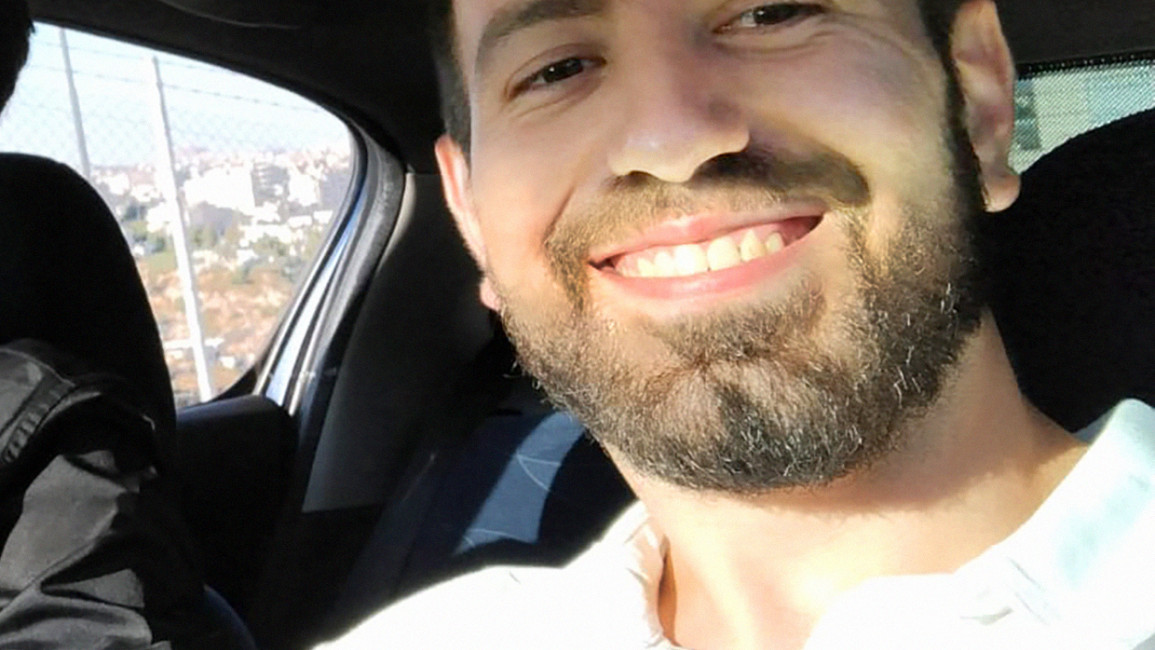Serdar Vardar in Hatay | Pelin Ünker in Hatay
DW
SEP. 26, 2023
Officials deny it but a DW investigation has found that the rubble from Turkey's devastating February earthquake contains life-threatening amounts of asbestos.
SEP. 26, 2023
Officials deny it but a DW investigation has found that the rubble from Turkey's devastating February earthquake contains life-threatening amounts of asbestos.
A DW exclusive investigation shows that in many places the dust from the earthquake rubble contains asbestos, a 'definite carcinogen' according to the WHO
Image: Serdar Vardar/DW
In Hatay, southern Turkey, crews are still demolishing buildings that were heavily damaged in the earthquake that struck on February 6, 2023, and killed tens of thousands of people. Yellow diggers move piles of leftover rubble, kicking up clouds of dust that shroud the city.
Some children walk through the debris to find a spot to play soccer. As they breathe, they're potentially inhaling a silent killer: asbestos.
The toxic building material has contaminated plants, soil and rubble in the key agricultural region, pointing to a serious, unfolding public health crisis, according to an exclusive investigation by DW's Turkish and Environment desks.
An expert team from the Turkish Chamber of Environmental Engineers collected dust samples in Hatay, which were then analyzed by AGT Vonka Engineering and Laboratory Services, an internationally accredited laboratory, for DW. The investigation shows the presence of asbestos in the region despite official claims to the contrary.
Public health experts told DW that people living in the earthquake-hit area, including thousands of children, are at serious risk of asbestos-linked cancers of the lungs and larynx. Mesothelioma, which is a particularly deadly and aggressive cancer, is another danger.
"In the coming years, we may face the deaths of tens of thousands of very young people due to mesothelioma cases," said Özkan Kaan Karadag, a medical doctor and expert in public and occupational health, after seeing the initial lab results from DW's investigation.
Clearing earthquake rubble exposes population to health risks
Once hailed as a miracle material with a vast range of uses, asbestos is now classified as a "definite carcinogen" by the World Health Organization. But asbestos construction materials are still found in many buildings in Turkey constructed before a 2010 ban on its sale — the exact number is unclear.
When these materials — often found in roofs, sidewalls and insulation — are broken, the asbestos can crumble to microscopic sizes and become airborne, spreading in the wind.
The February 6 earthquake destroyed 100,000 buildings in 11 cities, including Hatay. More than 200,000 others were severely damaged. The UN also estimated the quake, alongside a smaller one two weeks later, left between 116 million and 210 million tons of rubble. That's enough debris to cover an area nearly twice the size of Manhattan.
Workers are still demolishing damaged buildings and removing debris, often without masks or protective gear. In some cases, they are not using suppression methods — like spraying water — that would prevent the spread of dust. The DW team on the ground saw only one case of dust suppression with water during their investigation.
Organizations such as the Union of Chambers of Turkish Engineers and Architects say their warnings about the public health risks posed by haphazard post-earthquake demolition, debris removal and waste disposal practices are being ignored.
In response to these warnings, Mehmet Emin Birpinar, the then-Deputy Minister of Environment, Urbanization, and Climate Change, wrote on social media in June that there was no asbestos in the air.
"Our citizens in the earthquake zone can rest assured; we are working very carefully on asbestos," he said.
In Hatay, southern Turkey, crews are still demolishing buildings that were heavily damaged in the earthquake that struck on February 6, 2023, and killed tens of thousands of people. Yellow diggers move piles of leftover rubble, kicking up clouds of dust that shroud the city.
Some children walk through the debris to find a spot to play soccer. As they breathe, they're potentially inhaling a silent killer: asbestos.
The toxic building material has contaminated plants, soil and rubble in the key agricultural region, pointing to a serious, unfolding public health crisis, according to an exclusive investigation by DW's Turkish and Environment desks.
An expert team from the Turkish Chamber of Environmental Engineers collected dust samples in Hatay, which were then analyzed by AGT Vonka Engineering and Laboratory Services, an internationally accredited laboratory, for DW. The investigation shows the presence of asbestos in the region despite official claims to the contrary.
Public health experts told DW that people living in the earthquake-hit area, including thousands of children, are at serious risk of asbestos-linked cancers of the lungs and larynx. Mesothelioma, which is a particularly deadly and aggressive cancer, is another danger.
"In the coming years, we may face the deaths of tens of thousands of very young people due to mesothelioma cases," said Özkan Kaan Karadag, a medical doctor and expert in public and occupational health, after seeing the initial lab results from DW's investigation.
Clearing earthquake rubble exposes population to health risks
Once hailed as a miracle material with a vast range of uses, asbestos is now classified as a "definite carcinogen" by the World Health Organization. But asbestos construction materials are still found in many buildings in Turkey constructed before a 2010 ban on its sale — the exact number is unclear.
When these materials — often found in roofs, sidewalls and insulation — are broken, the asbestos can crumble to microscopic sizes and become airborne, spreading in the wind.
The February 6 earthquake destroyed 100,000 buildings in 11 cities, including Hatay. More than 200,000 others were severely damaged. The UN also estimated the quake, alongside a smaller one two weeks later, left between 116 million and 210 million tons of rubble. That's enough debris to cover an area nearly twice the size of Manhattan.
Workers are still demolishing damaged buildings and removing debris, often without masks or protective gear. In some cases, they are not using suppression methods — like spraying water — that would prevent the spread of dust. The DW team on the ground saw only one case of dust suppression with water during their investigation.
Organizations such as the Union of Chambers of Turkish Engineers and Architects say their warnings about the public health risks posed by haphazard post-earthquake demolition, debris removal and waste disposal practices are being ignored.
In response to these warnings, Mehmet Emin Birpinar, the then-Deputy Minister of Environment, Urbanization, and Climate Change, wrote on social media in June that there was no asbestos in the air.
"Our citizens in the earthquake zone can rest assured; we are working very carefully on asbestos," he said.
DW analysis finds asbestos in Turkish earthquake region despite official denials
But the results of the DW analysis of 45 samples from six different neighborhoods in Hatay appear to contradict official statements.
Sixteen randomly taken samples, including dust collected from the tops of tents of those made homeless by the earthquakes — as well as from leaves, fruit, soil and rubble — contained asbestos.

A dust sample taken from the leaves of an olive tree tested positive for chrysotile and anthophyllite types of asbestos
Image: ÇMO
In Gaziantep, 200 kilometers (124 miles) from Hatay, DW took a final dust sample from the roof of their rental car. The sample was positive for asbestos. The team had taken a control sample before leaving Gaziantep for Hatay after washing the car two days previously, and that sample was negative.
Experts told DW that this showed how the fibrous material can cling to vehicles and travel long distances.
Cancers linked to asbestos exposure can take decades to appear. However, the thick dust in the region is already harming health, with children at substantial risk, according to experts.
Fifteen-year-old Limar Yunusoglu and her family fled to Turkey from Syria to escape the war. After the earthquake they moved into tents near a rumble dump. Her brother is now ill.
"My brother got sick from the dust. We take him to the hospital, and they give him oxygen. But then we come back here where the dust hurts him. Sometimes he sleeps the whole week," said Yunusoglu.
Some 50 kilometers along the coast, a tradesman told DW that dust is making him and his family sick too. In the ruins next to his shop, there's a lot of waste, from electronic goods to insulations materials known to contain asbestos.
"We all have our noses and mouths full of dust. Our houses, our tents, the front of our houses, our cars are all full of dust. That's why our children and us, our mothers and fathers are all sick," he said, while showing red blotches that have appeared on his arms and stomach.
Public health expert Karadag said it was difficult to determine how many people are affected in the region without objective health monitoring studies.
"Official statements claiming that people are not affected only result in covering up the problem," he said.
In Gaziantep, 200 kilometers (124 miles) from Hatay, DW took a final dust sample from the roof of their rental car. The sample was positive for asbestos. The team had taken a control sample before leaving Gaziantep for Hatay after washing the car two days previously, and that sample was negative.
Experts told DW that this showed how the fibrous material can cling to vehicles and travel long distances.
Cancers linked to asbestos exposure can take decades to appear. However, the thick dust in the region is already harming health, with children at substantial risk, according to experts.
Fifteen-year-old Limar Yunusoglu and her family fled to Turkey from Syria to escape the war. After the earthquake they moved into tents near a rumble dump. Her brother is now ill.
"My brother got sick from the dust. We take him to the hospital, and they give him oxygen. But then we come back here where the dust hurts him. Sometimes he sleeps the whole week," said Yunusoglu.
Some 50 kilometers along the coast, a tradesman told DW that dust is making him and his family sick too. In the ruins next to his shop, there's a lot of waste, from electronic goods to insulations materials known to contain asbestos.
"We all have our noses and mouths full of dust. Our houses, our tents, the front of our houses, our cars are all full of dust. That's why our children and us, our mothers and fathers are all sick," he said, while showing red blotches that have appeared on his arms and stomach.
Public health expert Karadag said it was difficult to determine how many people are affected in the region without objective health monitoring studies.
"Official statements claiming that people are not affected only result in covering up the problem," he said.
Civil society working to address asbestos problem
In April, Hatay Bar Association and environmental and health organizations filed a lawsuit to halt demolition activities in the city, but the case is still pending after five months.
Ecevit Alkan from the Hatay Bar Association is one of the lawyers trying to fight against bad practices of waste removal. He too fell ill from the dust.

Health experts believe that thousands of children in the earthquake region are at risk of developing lung cancer by the time they reach their thirties
Image: Pelin Ünker/DW
Alkan helped map out all the rubble dump areas used in the city, because the authorities have not made the information public, he said. He shows DW one site that is close to a high school as well as to the container city for earthquake victims and an irrigation canal for farming. Hatay is part of the country's fertile crescent, and its agricultural produce like parsley and chard are transported all over the country.
"So, it is very risky to use this place as a rubble dump, for both humans and the environment," said Alkan.
Utku Firat, an environmental engineer who helped collect dust samples for DW, said the danger could have been minimized by removing asbestos materials before buildings were demolished.
"Not only did they fail to do so, but they also still do not even cover the lorries carrying the rubble with tarpaulins. Even this would have helped a lot," Firat said of the authorities and demolition companies.
While the damage that's happened so far cannot be reversed, some safety measures would at least diminish some of the dangers for people like Limar Yunusoglu and her brother.
"Masks should be distributed to the people and the workers in the region, and they should be encouraged to use them," said Firat. "Residential units in areas that are affected most by dust should be identified and moved to another place."
But the main solution, experts say, is to admit the problem and safely dispose of the deadly material.
Edited by: Jennifer Collins

Serdar Vardar Reporter working for DW's Environment desk.https://twitter.com/SerdarVardar_
Alkan helped map out all the rubble dump areas used in the city, because the authorities have not made the information public, he said. He shows DW one site that is close to a high school as well as to the container city for earthquake victims and an irrigation canal for farming. Hatay is part of the country's fertile crescent, and its agricultural produce like parsley and chard are transported all over the country.
"So, it is very risky to use this place as a rubble dump, for both humans and the environment," said Alkan.
Utku Firat, an environmental engineer who helped collect dust samples for DW, said the danger could have been minimized by removing asbestos materials before buildings were demolished.
"Not only did they fail to do so, but they also still do not even cover the lorries carrying the rubble with tarpaulins. Even this would have helped a lot," Firat said of the authorities and demolition companies.
While the damage that's happened so far cannot be reversed, some safety measures would at least diminish some of the dangers for people like Limar Yunusoglu and her brother.
"Masks should be distributed to the people and the workers in the region, and they should be encouraged to use them," said Firat. "Residential units in areas that are affected most by dust should be identified and moved to another place."
But the main solution, experts say, is to admit the problem and safely dispose of the deadly material.
Edited by: Jennifer Collins

Serdar Vardar Reporter working for DW's Environment desk.https://twitter.com/SerdarVardar_





